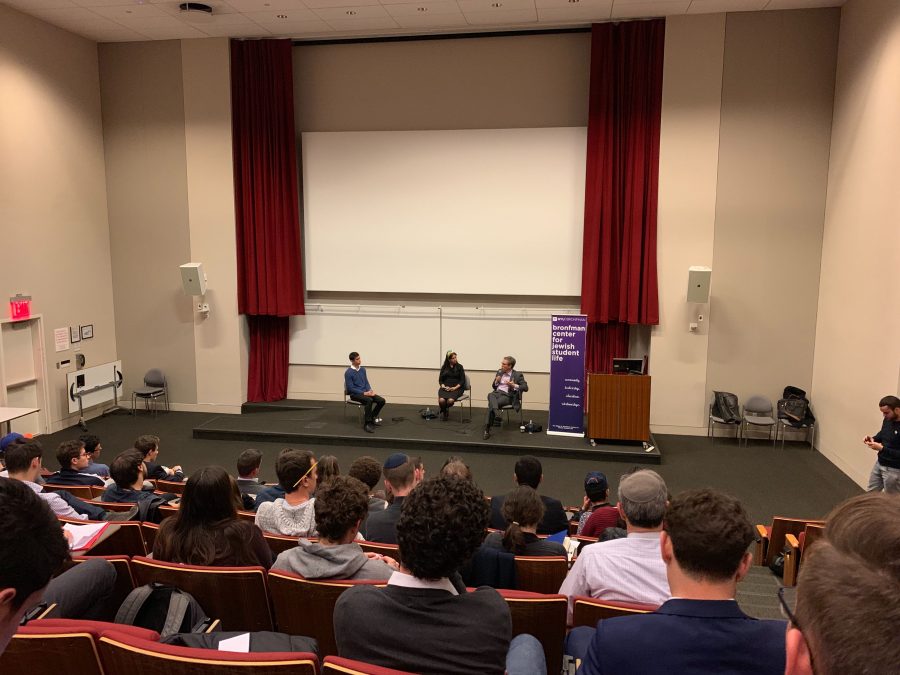Students crowded the auditorium at the Global Center for Academic and Spiritual Life to hear New York Times columnist Bret Stephens speak at an event co-hosted by TorchPAC and Realize Israel on Monday.
Stephens and Mijal Bitton of the Shalom Hartman Institute spoke on a panel moderated by NYU chaplain Rabbi Yehuda Sarna.
The panel discussed Stephens’ rebuke of an anti-Semitic cartoon published in the New York Times opinion pages on Thursday. When asked if it was difficult for him to write a rebuke to his own paper, Stephens was quick to respond.
“It was easy because I knew I had to write the piece the moment I saw the cartoon,” Stephens said. “I realized I’m either going to denounce it or feel ashamed of myself for a long time, so as an emotional decision it was easy.”
CAS senior Jake Steel is involved in Israeli political activism on campus and said he was happy to hear a different perspective from Stephens.
“We can’t just live in a bubble,” Steel said. “We need to be exposed to opinions of all kinds. Even though [Stephens] and I are probably on different sides of the political spectrum, I still want to hear from him.”
NYU Jewish Voice for Peace issued a statement in response to the event citing past comments from Stephens against Palestinians and Muslims. In one column, Stephens said Palestinians have a “blood fetish” and equated what he called “the Arab mind” to anti-Semitism in another. The statement went on to call for Sarna to disassociate from the Bronfman Center and the event.
“We are disappointed yet unsurprised that The Bronfman Center for Jewish Student Life at NYU and its director, Rabbi Yehuda Sarna, are embracing right-wing Islamophobe Bret Stephens for an event tonight,” the statement read. “While Rabbi Sarna positions himself as an interfaith champion, we are disturbed by his willingness to welcome with open arms someone as violently racist as Bret Stephens.”
TorchPAC president and CAS sophomore Matthew Paltiel Weinstein said the goal in curating the event was to have people across the ideological spectrum discuss being Jewish in the U.S.
“I think on university campuses, and on our campus particularly, [when people] talk about Israel Palestine-American Jewish politics, it’s a very one-sided or black-and-white dichotomy,” Weinstein said. “What we try to do is try to have dialogue that’s more nuanced, [with] less yelling and shouting.”
Bitton spoke about the importance of self-awareness and fighting biases within one’s own political community.
“Part of the challenge that we have right now is that it’s increasingly difficult for community leaders and organizations to point at anti-Semitism when it’s in their partisan and political home,” Bitton said. “It’s much easier to score political points by pointing it out in others.”
Stephens then criticized President Donald Trump and progressives because he believed both sides were legitimizing anti-Semitism.
“[Trump] has legitimized a set of ideas that bring the extremists that much closer to the mainstream,” Stephens said. “In the same way that progressives on the left, by legitimizing anti-Zionism, have brought anti-Semitism closer to the fold so there’s a kind of mirror-like process.”
Email Emily Mason at [email protected].


























































































































































